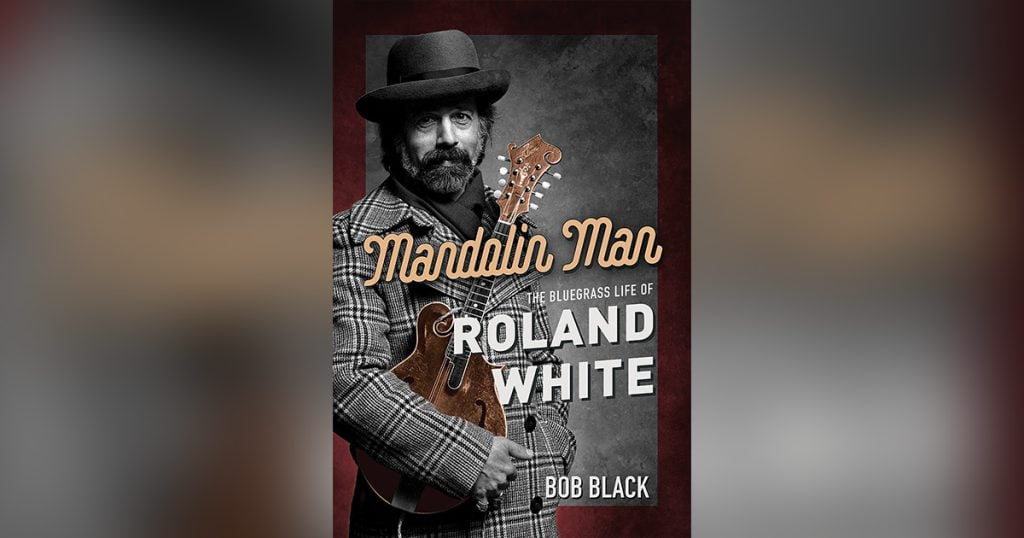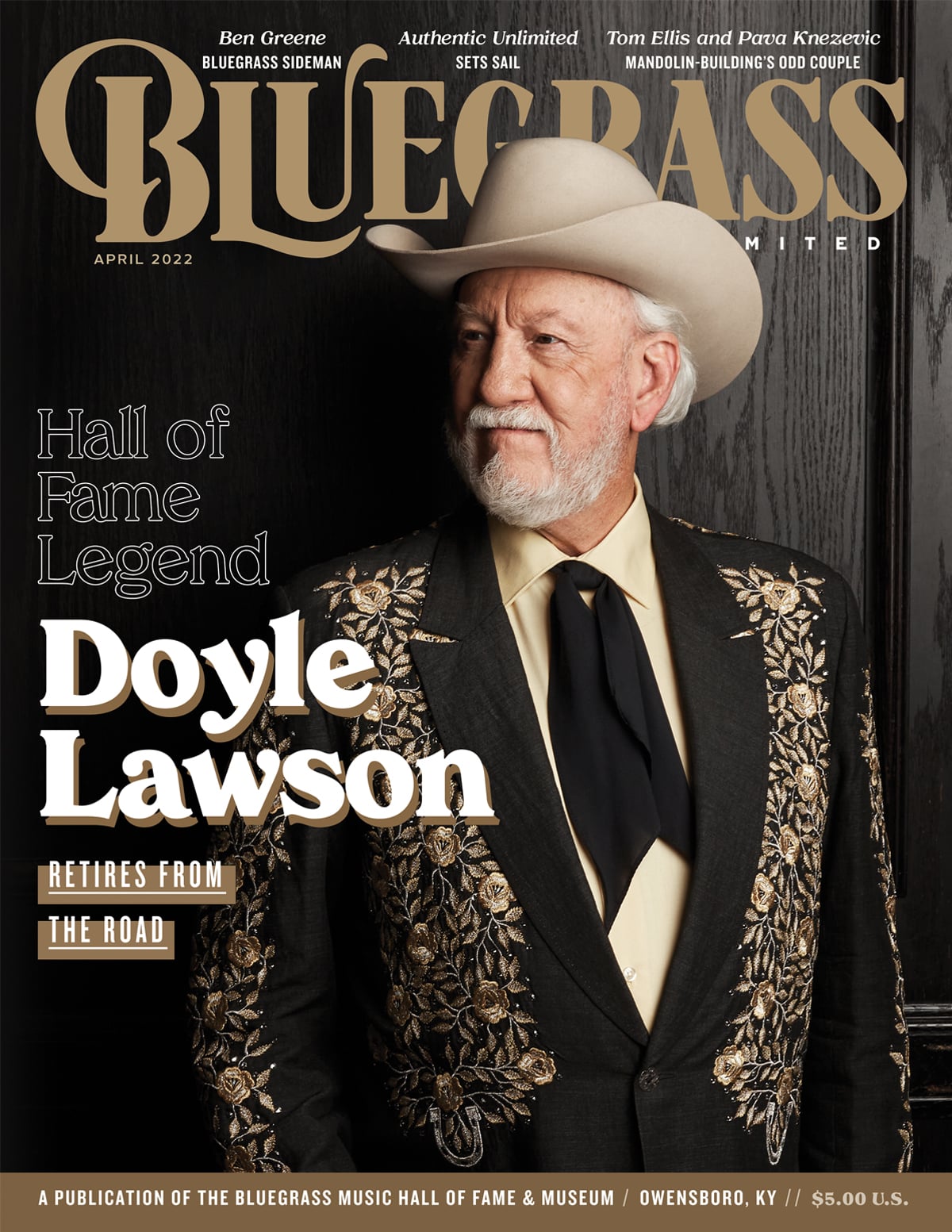Mandolin Man: The Bluegrass Life of Roland White
If you don’t know the tale of Roland White and brothers Clarence and Eric White, who were born in Maine, moved as kids to California, and influenced every subsequent generation of bluegrassers, then you don’t know the full story of bluegrass. Fortunately, Bob Black’s superb new biography of the oldest of the White brothers demonstrates, with skill and vivid detail, the unquestionably immense impact Roland has had on bluegrass for seven decades and counting.
Even a cursory summation of Roland White’s achievements and contributions tells the bold tale of a true bluegrass warrior, one determined to absorb bluegrass music and mandolin from the source. One who went on to share that passion and musical vision with the world. From appearing on the Andy Griffith Show with his brothers as the Country Boys, to the astonishing early records with the Kentucky Colonels and later live show releases that showcased the genius flatpicking of Clarence and Roland’s subtly brilliant mandolin, to Roland’s career after Clarence’s tragic death that led to gigs with Monroe as a rhythm guitarist with the Blue Grass Boys and then with Lester Flatt in Nashville Grass, Black shows Roland passionately absorbing musical insights and knowledge from the first-generation masters at every turn. Despite having to work odd jobs outside of music to survive at times, Roland’s talent and persistence helped bluegrass survive despite dwindling public interest at the time when rock reigned supreme on the airwaves and record store bins.
As Black’s massive research and keen memory reveal throughout the book, Roland White also played one of the pivotal roles in remaking modern bluegrass with the New Kentucky Colonels (after Clarence left the Byrds), the Dreadful Snakes with future superstar Bela Fleck, the legendary Nashville Bluegrass Band where he replaced Mike Compton, Country Gazette with his brother and Alan Munde, and his own recording projects like the brilliant solo LP I Wasn’t Born To Rock and Roll.
Behind the scenes, as Black masterfully reveals, Roland has been a humble and deeply influential private force inside Nashville’s bluegrass scene, encouraging other talents, serving as the de facto mentor for two generations of bluegrass guitarists eager to learn to play bluegrass rhythm guitar the way Big Mon taught White how he wanted guitar played in his music. An accomplished educator and frequent instructor at bluegrass camps, White’s legacy even includes his great instruction books, Roland’s White’s Approach to Bluegrass Mandolin, and his tribute to brother Clarence’s ground-shattering guitar playing, The Essential Clarence White Guitar Leads (available at rolandwhite.com).
Black builds his history on personal recollections, interviews with numerous bluegrass stars like Alan O’Bryant who’ve worked with White over the years, and key commentary from Roland himself. At times, however, the bio feels a bit over-burdened with Black’s personal observations, making comments on the decisions White made on his career trajectory from the author’s perspective instead of using a direct quote from the subject. But readers (and reviewers) must remain aware that due to White’s age and declining health, Black’s opportunities for direct interviews and fact-checking must have been limited.
I fell head over heels in love with the music of Roland White and his brothers the first time I heard Appalachian Swing, and have relentlessly tracked down every recording I could find. But even as a lifelong fan, I found myself gaining a new, dramatically enhanced, understanding of the breadth and scope of Roland’s career and his impact in bluegrass as I read this book. Not just as a musician, but as a champion, educator, and evangelist in ways far beyond what I had previously understood.
Truly, Bob Black has delivered another instant classic biography of one of bluegrass music’s most valuable, but perhaps under-appreciated, influencers and torch-bearers. If you read but one bluegrass history or biography this year, make it Mandolin Man: The Bluegrass Life of Roland White.

